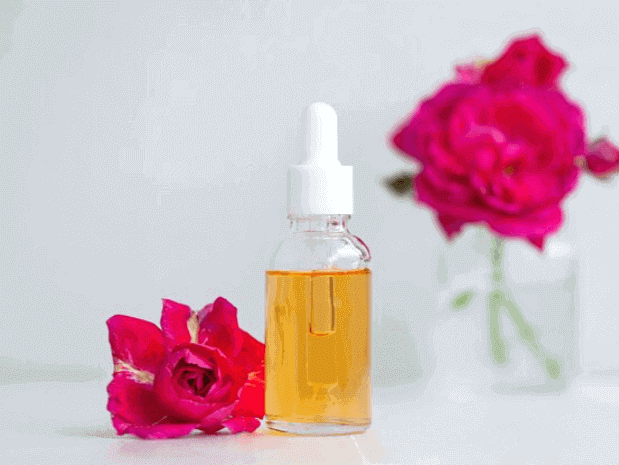
Gentle Care: Natural Skincare for Sensitive Skin Unveiled
Introduction: Unlocking the Beauty of Sensitive Skin
Sensitive skin, often misunderstood and overlooked, possesses a unique allure waiting to be uncovered. In this guide, we embark on a journey to demystify and celebrate the intricacies of sensitive skin care. It’s a realm where empathy and expertise intertwine and where the right choices yield radiant results.
Here, we’ll unveil the secrets to soothe and protect, to enhance and enrich, as we navigate the delicate terrain of sensitivity. With a focus on gentle practices, nourishing diets, and lifestyle wisdom, this guide empowers you to embrace your skin’s uniqueness.
Prepare to discover the hidden potential of sensitive skin, where vulnerability meets resilience and beauty shines through.
Understanding Sensitive Skin
Understanding sensitive skin is essential for proper skincare. Sensitive skin tends to react strongly to various factors, such as environmental conditions, allergens, and skincare products. Common reactions include redness, itching, burning, or tightness. Those with sensitive skin need specialized products that soothe without causing irritation.
Sensitive skin is often more prone to sunburn and may require extra protection. It’s crucial to choose sunscreen with a high SPF and gentle ingredients. Additionally, avoid harsh scrubs and opt for mild cleansers. Fragrance-free, hypoallergenic products are your best friends.
Understanding your skin type is the first step towards achieving a healthy complexion. By selecting products designed for sensitive skin, you can prevent irritation and maintain a beautiful, comfortable appearance.
The Power of Natural Ingredients
Aloe Vera: Nature’s Soothing Agent
Aloe vera is a gift from nature when it comes to soothing and healing properties for the skin. This succulent plant has been used for centuries to treat various skin conditions and is especially beneficial for sensitive skin.
One of aloe vera’s remarkable qualities is its anti-inflammatory power. It can reduce redness and calm irritated skin, making it a top choice for those with sensitive skin. Aloe vera is also deeply hydrating, helping to lock in moisture without clogging pores or causing further irritation.
Whether applied directly from the plant or in skincare products, aloe vera’s natural goodness can provide relief from itching, burning, and discomfort. Its gentle and soothing properties make it a must-have ingredient in your sensitive skin care routine.
Chamomile: The Gentle Giant
Chamomile, often referred to as the “gentle giant” in the world of skincare, boasts a plethora of benefits, particularly for those with sensitive skin.
This dainty, daisy-like flower is a powerhouse of anti-inflammatory and antioxidant properties. It excels at reducing skin irritation and redness, making it a natural choice for calming sensitive skin.
Chamomile is commonly used in various skincare products, including creams, toners, and cleansers. Its soothing properties help to alleviate discomfort and promote a youthful, radiant complexion. When used in skincare routines, chamomile can provide gentle care without harsh side effects, making it a go-to ingredient for those seeking a natural solution for sensitive skin. Embrace the gentle giant of skincare and let chamomile work its magic for a smoother, more serene complexion.
Coconut Oil: Nature’s Multi-Purpose Elixir
Coconut oil is a versatile and natural elixir that has garnered immense popularity for its wide-ranging benefits. Derived from the meat of coconuts, this wonder oil is a treasure trove of nourishment for both your skin and hair.
In skincare, coconut oil stands as a moisturizing champion. Rich in fatty acids, it penetrates deeply to hydrate and soften the skin, leaving it smooth and supple. Its natural antimicrobial properties also make it an effective choice for soothing skin irritations and minor wounds.
For hair care, coconut oil works wonders as a conditioner and repair agent. It locks in moisture, combats frizz, and promotes hair strength and shine.
Beyond beauty, coconut oil has a multitude of culinary and health uses, making it a true household essential. This multi-purpose elixir has truly earned its place in our daily lives, offering a range of benefits that are as diverse as they are exceptional.
Honey: Liquid Gold for Health and Beauty
Honey, often referred to as “liquid gold,” has been treasured for centuries for its remarkable health and beauty benefits. This natural sweetener, produced by bees from nectar, is a versatile and precious substance.
In skincare, honey is celebrated for its antibacterial and antioxidant properties. It’s a natural humectant, meaning it retains moisture, making it an excellent ingredient for hydrating and soothing the skin. Honey’s antibacterial qualities also make it effective for treating acne and other skin irritations.
Moreover, honey’s rich antioxidant content helps fight the signs of aging and promotes a youthful complexion. When used in hair care, it can add shine and softness, making it a go-to natural conditioner.
Beyond beauty, honey is a powerhouse of health benefits, known for its soothing properties when consumed or applied topically. From wound healing to allergy relief, honey’s versatility is unmatched, earning its status as a true natural wonder.
Green Tea: Nature’s Elixir for Health and Vitality
Green tea, derived from the leaves of the Camellia sinensis plant, has long been celebrated for its potent health benefits. This ancient elixir has gained modern popularity due to its numerous advantages for the body and mind.
Rich in antioxidants called catechins, green tea is a powerful tool in the fight against oxidative stress. These compounds help protect cells from damage and reduce the risk of chronic diseases, making green tea a valuable addition to a healthy lifestyle.
Beyond its health benefits, green tea also boasts beauty perks. It contains polyphenols that may help improve skin health, reducing the signs of aging and supporting a clear complexion. Additionally, its caffeine content provides a mild energy boost and improved focus without the jitters associated with coffee.
By incorporating green tea into your daily routine, whether by sipping a hot cup or using it in skincare products, you harness nature’s elixir for a healthier, more vibrant life.
Jojoba Oil: The Skin’s Natural Ally
Jojoba oil, derived from the seeds of the jojoba plant (Simmondsia chinensis), is a remarkable natural ingredient revered for its skin-loving properties. This golden liquid closely mimics the skin’s sebum, making it a superb addition to your skincare routine.
One of jojoba oil’s standout features is its ability to provide deep hydration without clogging pores. It’s a lightweight, non-comedogenic oil that balances oil production, making it suitable for various skin types, including acne-prone and sensitive skin.
In addition to its moisturizing prowess, jojoba oil is rich in vitamins and antioxidants that combat the effects of free radicals, promoting youthful, radiant skin. It can also soothe skin irritations, such as redness or dryness, and assist in the repair of the skin’s natural barrier.
Whether used as a moisturizer, makeup remover, or carrier oil for essential oils, jojoba oil is a versatile and skin-friendly option that nature provides. Incorporating it into your daily routine can help you achieve a healthy, glowing complexion.
Oatmeal: Nature’s Skin Soother
Oatmeal, a humble pantry staple, has earned its reputation as a soothing and nourishing ingredient for both the body and skin. Rich in vitamins, minerals, and antioxidants, oatmeal offers a wide array of benefits that contribute to a healthier, more radiant complexion.
In skincare, oatmeal’s gentle exfoliating properties make it an ideal choice for removing dead skin cells and unclogging pores, reducing the risk of acne breakouts. Its anti-inflammatory properties help calm skin irritation and redness, making it an excellent option for sensitive or irritated skin.
Moreover, oatmeal is a natural moisturizer that helps lock in hydration, leaving the skin soft and supple. It forms a protective barrier on the skin, safeguarding it from environmental aggressors.
Whether used in DIY masks, bath soaks, or as an ingredient in skincare products, oatmeal is a versatile ally for promoting clear, healthy skin. Its natural goodness continues to make it a go-to remedy for addressing various skin concerns.
Crafting Your Skincare Routine: A Blueprint for Healthy Skin
Creating an effective skincare routine is like assembling the pieces of a puzzle, and for those with sensitive skin, it requires a little extra care and consideration. Here’s a blueprint to help you craft a skincare routine that nurtures and protects your delicate complexion:
Cleansing with Care: The Art of Gentle Skincare
Cleansing is the cornerstone of any effective skincare routine, and doing it with care is essential for maintaining healthy and radiant skin. Whether you have sensitive skin or not, adopting a gentle approach to cleansing can make a world of difference in your complexion.
Start by selecting a mild, sulfate-free cleanser that won’t strip your skin of its natural oils. Harsh cleansers can disrupt the skin’s moisture balance and lead to dryness or irritation, particularly for those with sensitive skin.
When cleansing, use a soft, circular motion with your fingertips, avoiding excessive pressure or scrubbing. This gentle technique effectively removes impurities without causing friction that could harm the skin.
Remember to rinse thoroughly with lukewarm water to ensure all traces of cleanser are removed, as residual product can contribute to irritation.
Cleansing with care not only promotes clean, clear skin but also sets the stage for the rest of your skincare routine. It represents a straightforward yet pivotal action on the path to attaining a lively and vibrant skin tone.
Hydration is Key: Unlocking Healthy Skin
When it comes to skincare, one golden rule stands above all others: hydration is key. Regardless of your skin type, keeping your skin well hydrated is fundamental for a healthy and radiant complexion.
For sensitive skin, this principle is especially crucial. Dryness and irritation are common concerns, and proper hydration can provide relief and protection.
Choosing a suitable moisturizer is the first step. Opt for fragrance-free and hypoallergenic products designed for sensitive skin. These formulations are less likely to trigger adverse reactions.
Applying moisturizer should be a regular part of your skincare routine. After cleansing, gently pat your skin dry with a clean towel, leaving it slightly damp. This allows the moisturizer to lock in the moisture more effectively.
Hydrated skin not only looks healthier but also functions better as a barrier against environmental stressors. So, whether you have sensitive skin or not, remember that hydration is your ally in the quest for beautiful, resilient skin.
Sunscreen: Your Skin’s Guardian Against Harmful Rays
Sunscreen isn’t just a summertime essential; it’s a year-round safeguard for maintaining healthy and youthful skin. For those with sensitive skin, choosing the right sunscreen is crucial for protection against irritation and sun damage.
- Broad-Spectrum Protection: Opt for a sunscreen labeled “broad-spectrum,” which shields your skin from both UVA and UVB rays. UVA radiation has the potential to accelerate skin aging prematurely, whereas UVB rays are responsible for causing sunburn.
- SPF Matters: Select a sunscreen with an SPF of 30 or higher. This provides adequate protection against harmful UV radiation. For sensitive skin, a higher SPF can offer an extra layer of defense.
- Mineral Sunscreens: Consider using mineral sunscreens with zinc oxide or titanium dioxide. These physical blockers are less likely to cause irritation compared to chemical sunscreens.
- Fragrance-Free and Hypoallergenic: Seek out sunscreens that are fragrance-free and hypoallergenic, specifically formulated for sensitive skin. These are unlikely to incite unfavorable responses.
- Reapplication: Remember to reapply sunscreen every two hours, especially if you’re spending time outdoors. This helps maintain continuous protection.
- Test Before Use: If trying a new sunscreen, do a patch test on a small area of your skin to ensure it doesn’t cause irritation.
Sunscreen is your skin’s best defense against the harmful effects of UV radiation, including sunburn, premature aging, and skin cancer. Prioritize sunscreen application in your daily skincare routine to maintain a healthy, radiant complexion, even with sensitive skin.
Choosing Wisely: Navigating the Skincare Product Selection
In the world of skincare, making informed choices is vital, especially for individuals with sensitive skin. Opting for products that suit your skin’s unique needs can make a significant difference in your overall skin health.
First and foremost, scrutinize product labels. Avoid those containing harsh chemicals, synthetic fragrances, and alcohol, as these culprits can provoke skin sensitivity.
Hypoallergenic products are a safe bet; they are formulated specifically to reduce the risk of allergic reactions. Additionally, fragrance-free options decrease the likelihood of skin irritations.
Before introducing a new product into your routine, conduct a patch test on a discreet area of your skin to gauge compatibility.
For personalized guidance, consult a dermatologist. They can recommend products tailored to your specific requirements, ensuring a soothing and effective skincare regimen.
Simplify your routine by focusing on the essentials, such as a gentle cleanser, moisturizer, sunscreen, and any specialized treatments advised by your dermatologist. By selecting skincare products wisely, you can minimize sensitivity risks and enjoy a comfortable, radiant complexion.
Patch Test: Your Safety Net in Skincare
A patch test is a simple yet indispensable practice in the world of skincare, especially for those with sensitive skin. This precautionary step can help you avoid potential allergic reactions and skin irritations when introducing new products into your routine.
To conduct a patch test:
- Select a Small Area: Choose a small, inconspicuous area of your skin, such as the inside of your wrist or behind your ear.
- Apply the Product: Apply a small amount of the product you want to test to the chosen area. Ensure it’s the same product you intend to use on your face or body.
- Wait and Observe: Allow the product to sit on your skin for 24–48 hours. During this time, keep an eye out for any signs of redness, itching, burning, or other adverse reactions.
- No Reaction, No Problem: If your skin shows no adverse reactions during the test period, the product is likely safe to use.
By incorporating a patch test into your skincare routine, you can identify potential sensitivities early, ensuring that your skincare products are a perfect match for your skin. This simple practice can save you from discomfort and help maintain a healthy, beautiful complexion.
Consult a Dermatologist: Your Skincare Guiding Light
When it comes to caring for your skin, particularly if you have sensitive skin or unique concerns, consulting a dermatologist can be an invaluable step toward achieving your skincare goals.
Dermatologists are healthcare experts who specialize in diagnosing, treating, and preventing various skin conditions. They possess the expertise to evaluate your skin’s specific needs and provide personalized recommendations. Here’s why a dermatologist consultation is essential:
- Professional Assessment: Dermatologists can accurately diagnose skin issues, from acne and eczema to more complex conditions. Their knowledge and proficiency guarantee that you receive the appropriate treatment.
- Customized Solutions: A dermatologist can recommend skincare products and treatments tailored to your skin type and concerns, reducing the risk of adverse reactions.
- Guidance on Chronic Conditions: If you have chronic skin conditions like rosacea or psoriasis, a dermatologist can help manage and alleviate symptoms effectively.
- Skin Cancer Prevention: Dermatologists perform regular skin checks, helping detect skin cancer early, when it’s most treatable.
- Optimal Results: For cosmetic procedures like Botox or chemical peels, a dermatologist ensures safe and successful outcomes.
Don’t hesitate to seek the guidance of a dermatologist. Their expertise can transform your skincare routine, address skin concerns, and help you achieve a radiant, healthy complexion.
DIY Skincare Recipes for Sensitive Skin

Honey and Oatmeal Mask: Nature’s Soothing Skin Remedy
A honey and oatmeal mask is a natural skincare remedy that combines the healing properties of honey with the gentle exfoliation of oatmeal to provide your skin with a soothing and rejuvenating treatment. Here’s how to make and use this DIY mask:
Ingredients:
- 2 tablespoons of finely ground oatmeal
- 1 tablespoon of raw honey
Instructions:
- Combine Ingredients: Mix the finely ground oatmeal and raw honey in a small bowl. Stir until you achieve a smooth, consistent paste.
- Cleanse: Start with a clean face. Gently purify your skin to eliminate makeup, grime, or impurities.
- Application: Apply the mask evenly to your face, avoiding the delicate eye area. You can also use it on your neck or any other areas that need attention.
- Relax: Allow the mask to remain on your skin for approximately 15–20 minutes. Use this time to relax and let the mask perform its wonders.
- Rinse: Following the advised duration, wash away the mask with lukewarm water. Use gentle, circular motions to exfoliate your skin while rinsing.
- Moisturize: Finish by applying your favorite moisturizer to lock in the hydration.
This honey and oatmeal mask can help soothe irritated skin, reduce redness, and provide deep hydration. It’s suitable for all skin types, especially those with sensitive or dry skin. Incorporate it into your skincare routine for a refreshing and rejuvenating treat that leaves your skin soft, smooth, and glowing.
Cucumber and Rosewater Toner: A Natural Elixir for Your Skin
A cucumber and rosewater toner is a refreshing and gentle skincare solution that can help balance your skin’s pH, hydrate, and soothe. This DIY toner is easy to make and provides a spa-like experience in the comfort of your own home. Here’s the method of making it and using it:
Ingredients:
- 1 fresh cucumber
- 2 tablespoons of rosewater
Instructions:
- Prepare the Cucumber: Start by peeling and chopping the cucumber into small pieces.
- Blend: Put the cucumber pieces in a blender and blend until you get a smooth, watery consistency.
- Strain: Pour the blended cucumber through a fine sieve or cheesecloth into a clean bowl, extracting the cucumber juice.
- Mix with Rosewater: Add the rosewater to the cucumber juice and mix thoroughly.
- Transfer to a Bottle: Pour the mixture into a clean, airtight bottle or container for storage.
How to Use:
- After cleansing your face, apply the cucumber and rosewater toner to a cotton pad.
- Gently glide the cotton pad across your face and neck, being careful to avoid the delicate eye area.
- Allow the toner to air dry or pat it gently with your fingertips.
- Follow up with your regular moisturizer.
This natural toner helps hydrate and refresh your skin, while the cucumber’s anti-inflammatory properties soothe any irritations. Rosewater adds a lovely scent and further hydrates, leaving your skin feeling revitalized and ready to take on the day. Integrate it into your skincare regimen to add a dash of natural indulgence.
Avocado and Yogurt Face Mask: Nourishing Bliss for Sensitive Skin
This homemade face mask combines the hydrating power of avocado with the soothing properties of yogurt, making it a delightful treat for sensitive skin. Here’s how to create and use this skin-loving mask:
Ingredients:
- 1 ripe avocado
- 2 tablespoons of plain yogurt (unsweetened and unflavored)
Instructions:
- Prepare the Avocado: Begin by scooping out the flesh of the ripe avocado and placing it in a clean bowl.
- Mash the Avocado: Use a fork to mash the avocado until it becomes a smooth, creamy consistency.
- Add Yogurt: Incorporate the plain yogurt into the mashed avocado and mix thoroughly. The blend should possess a uniform consistency.
- Application: After cleansing your face, apply the mask evenly to your skin using clean fingertips or a brush. Avoid the eye area.
- Relax: Kick back and let the mask work its magic for about 15-20 minutes. This allows the nourishing ingredients to deeply penetrate your skin.
- Rinse Off: Once the time is up, rinse the mask off with lukewarm water. Delicately dab your face dry using a clean towel.
- Moisturize: Finish your skincare routine by applying your favorite moisturizer to lock in the hydration.
This avocado and yogurt face mask provides a surge of moisture and soothing relief for sensitive skin. Avocado’s natural oils hydrate and nourish, while yogurt’s probiotics and proteins promote a healthy complexion. Incorporate this DIY mask into your skincare regimen to enjoy a revitalized and radiant appearance.
Olive Oil and Sugar Scrub: A Gentle Exfoliation for Sensitive Skin
The olive oil and sugar scrub is a DIY skincare remedy that offers gentle exfoliation and deep hydration, making it an ideal choice for sensitive skin. Here’s how to create and use this nurturing scrub:
Ingredients:
- 2 tablespoons of olive oil
- 2 tablespoons of sugar (white or brown)
Instructions:
- Combine Ingredients: In a small bowl, blend the olive oil and sugar until they form a grainy paste. Ensure the mixture is well-mixed for effective exfoliation.
- Cleanse Your Skin: Start with clean, damp skin. Gently cleanse your face to remove any makeup, dirt, or impurities.
- Application: Using your fingertips, apply the olive oil and sugar scrub to your damp skin. Begin massaging it in with gentle, circular motions.
- Exfoliate: Continue massaging for 1-2 minutes, focusing on areas that may need extra exfoliation, like the nose and forehead. Avoid the delicate eye area.
- Rinse Thoroughly: Rinse your skin thoroughly with lukewarm water to remove the scrub, and pat your face dry with a clean towel.
- Hydrate: Conclude by applying your chosen moisturizer to lock in the moisture.
This gentle scrub provides effective exfoliation to remove dead skin cells, while the olive oil offers deep moisturization and nourishment. It leaves your skin feeling soft, smooth, and rejuvenated, making it a fantastic addition to your sensitive skincare routine. For optimal outcomes, utilize it once a week.
Chamomile and Green Tea Toner: Nature’s Calming Elixir for Sensitive Skin
Creating a homemade chamomile and green tea toner is a wonderful way to harness the soothing and anti-inflammatory properties of these natural ingredients for your sensitive skin. Here’s how to prepare and use this gentle toner:
Ingredients:
- 1 chamomile tea bag
- 1 green tea bag
- 1 cup of hot water
- 1-2 drops of lavender essential oil (optional)
Instructions:
- Brew the Tea: Start by placing the chamomile and green tea bags in a cup of hot water. Allow them to steep for 10–15 minutes. This infusion will extract the calming benefits of the herbs.
- Cool the Mixture: Remove the tea bags and let the infused tea cool to room temperature. This ensures that the toner is gentle on your skin.
- Add Lavender Oil (Optional): If you desire a soothing fragrance and additional skin benefits, add 1-2 drops of lavender essential oil to the tea. Stir well to combine.
- Transfer to a Container: Pour the chamomile and green tea toner into a clean, airtight container or bottle for convenient storage.
How to Use:
- After cleansing your face, apply the toner by saturating a cotton pad with the mixture.
- Gently sweep the cotton pad across your face and neck, avoiding the eye area.
- Allow the toner to air dry on your skin or lightly pat it with your fingertips.
- Follow up with your preferred moisturizer.
Chamomile and green tea both offer anti-inflammatory properties that can soothe redness and irritation, making this toner ideal for sensitive skin. The addition of lavender essential oil, if chosen, provides a calming fragrance. Incorporate this DIY toner into your skincare routine to experience the benefits of these natural ingredients for a serene and refreshed complexion.
Lifestyle and Diet
Stay Hydrated: The Secret to Healthy Skin
When it comes to maintaining healthy and radiant skin, one of the most fundamental and often overlooked practices is staying hydrated. Proper hydration plays a vital role in the appearance and function of your skin, and it’s especially crucial for individuals with sensitive skin.
Here’s why hydration is key:
- Moisture Barrier: Adequate hydration helps maintain your skin’s natural moisture barrier. This barrier is like a protective shield that locks in moisture and prevents environmental irritants from causing sensitivity or dryness.
- Reduced Irritation: Sensitive skin is more prone to irritation and redness. Well-hydrated skin is less likely to become irritated, as it’s better equipped to defend against external aggressors.
- Improved Texture: Hydrated skin tends to be smoother and more supple, reducing the appearance of fine lines and wrinkles.
- Natural Glow: Proper hydration gives your skin a healthy, radiant glow that enhances your overall complexion.
To keep your skin hydrated:
- Drink plenty of water throughout the day.
- Use a moisturizer designed for sensitive skin.
- Integrate hydrating components like hyaluronic acid into your daily skincare regimen.
- Avoid hot showers, as they can strip your skin of moisture.
- Employ a humidifier to introduce moisture into the atmosphere, particularly in arid climates.
By staying hydrated, you provide your sensitive skin with the support it needs to thrive, resulting in a clearer, more comfortable, and youthful complexion.
A Balanced Diet: Fueling Your Skin’s Radiance
Achieving and maintaining healthy, glowing skin starts from within, and a balanced diet plays a crucial role in this process. This principle applies to everyone, but it’s particularly vital for those with sensitive skin, as certain nutrients can help alleviate sensitivity and promote a clear complexion.
Here’s how a well-rounded diet contributes to the well-being of your skin:
- Nutrient Absorption: A diet rich in vitamins, minerals, and antioxidants supports your skin’s ability to repair itself and defend against environmental stressors.
- Collagen Production: Foods like lean proteins, fruits, and vegetables contribute to collagen production, promoting skin elasticity and reducing the appearance of fine lines.
- Hydration: Foods with high water content, such as fruits and vegetables, help keep your skin hydrated from the inside out.
- Reduced Inflammation: Anti-inflammatory foods like fatty fish, flaxseeds, and leafy greens can help reduce skin redness and inflammation common in sensitive skin.
- Gut Health: A healthy gut microbiome, supported by a balanced diet with fiber-rich foods, can have a positive impact on skin health.
Incorporate the following into your diet for optimal skin benefits:
- Fruits and vegetables (especially those rich in antioxidants like berries and leafy greens)
- Lean proteins (chicken, fish, and and tofu)
- Healthy fats (avocado, nuts, olive oil)
- Whole grains (oats, quinoa, and brown rice)
- Plenty of water for hydration
Limit or avoid processed foods, excessive sugar, and alcohol, as they can contribute to skin issues and sensitivity.
A balanced diet not only nurtures your overall well-being but also serves as a powerful tool for maintaining healthy, radiant skin, even for those with sensitive skin.
Conclusion: Nurturing Your Sensitive Skin for Lasting Radiance
Sensitive skin may require a little extra care, but with the right approach, you can achieve and maintain a radiant complexion. By embracing gentle skincare practices and making mindful choices in your lifestyle and diet, you empower your skin to thrive.
Remember to keep your skincare routine simple, using fragrance-free products and prioritizing hydration. Protect your skin from the sun, manage stress, and ensure you get quality sleep.
Incorporate skin-loving nutrients through a balanced diet, emphasizing fruits, vegetables, lean proteins, and healthy fats. Omega-3 fatty acids and probiotics can be especially beneficial.
Lastly, when sensitivity persists, don’t hesitate to seek guidance from a dermatologist. Their expertise can provide tailored solutions to address your specific skin needs.
By following these guidelines and making sensitivity-friendly choices, you can nurture your sensitive skin, reduce irritation, and reveal a healthy, glowing complexion that reflects your inner vitality. Remember, consistency in your skincare and lifestyle practices is the key to achieving lasting radiance.
FAQs
- Can natural skincare really help sensitive skin? Yes, natural ingredients are often gentler and can soothe sensitive skin effectively.
- How often should I apply a honey and oatmeal mask? Once a week is typically sufficient, but adjust based on your skin’s needs.
- What should I avoid in skincare products for sensitive skin? Stay away from products with harsh chemicals, fragrances, and alcohol, as they can exacerbate sensitivity.
- Can I use natural oils on my sensitive skin? Some natural oils, like jojoba and argan oils, can be beneficial, but always do a patch test first.
- Is it necessary to consult a dermatologist for sensitive skin? If your sensitivity persists or worsens, it’s advisable to seek professional advice for a tailored skincare plan.
Additional FAQs
- What causes sensitive skin? Sensitive skin can result from various factors, including genetics, environmental influences, skincare product ingredients, and underlying skin conditions. Identifying the specific cause of sensitivity is essential for effective management.
- Can I use natural remedies for sensitive skin? Natural remedies like aloe vera, chamomile, and oatmeal can be soothing for sensitive skin. However, it’s crucial to perform patch tests and consult with a dermatologist before trying any new remedies to ensure they’re suitable for your skin type.
- How can I soothe skin irritation? To alleviate skin irritation, you can apply a cold compress, use fragrance-free moisturizers, avoid hot showers, and choose skincare products designed for sensitive skin. Additionally, chamomile and green tea toners can have a calming effect on irritated skin.
- Should I exfoliate sensitive skin? Exfoliation can be beneficial for sensitive skin when done gently and infrequently. Opt for mild exfoliants and use them no more than once a week to avoid over-exfoliation, which can worsen sensitivity.
- Is there a cure for sensitive skin? While there’s no permanent cure for sensitive skin, adopting a consistent and gentle skincare routine, making lifestyle and dietary adjustments, and consulting with a dermatologist can help manage and reduce sensitivity, leading to a healthier complexion.





